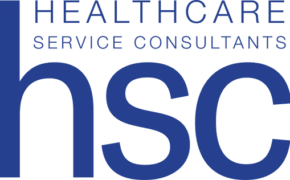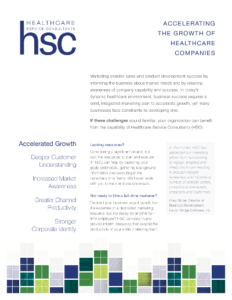
When competing for the attention of busy clinicians or healthcare executives, the allure of using the latest buzzwords is hard to resist. Acronyms and words like “AI,” “NLP,” and “cloud-native” often seem like magic spells. They enchant potential customers and open the doors to new markets.
As Halloween approaches, it’s a perfect time to consider how these marketing buzzwords can be a double-edged sword. Much like a spooky jack-o’-lantern, they can light up your brand—or leave you in the dark when the initial excitement fades.
What Are Buzzwords in Healthcare IT?
Buzzwords are terms that gain popularity due to their association with new and exciting technologies or solutions within a given clinical context. In healthcare IT, examples include:
- Vendor Neutral Archive (VNA)
- Deconstructed PACS
- Artificial Intelligence (AI) Platforms
- Natural Language Processing (NLP)
These terms often start as meaningful intellectual concepts. But, they soon become overused and lose their impact and meaning.
Understanding Buzzword Fatigue
The evolution of a buzzword follows a typical lifecycle. At first, they represent genuine innovation or new technology. As they grow in popularity, they generate excitement and capture the attention of customers and investors alike.
Once overused, buzzwords can become empty jargon, leading to “buzzword fatigue.” This overexposure often causes the early adopters to move on to the next new thing, leaving the buzzword to fizzle out.
Make Sure Buzzwords Fit Your Products
Technically-inclined founders and marketing teams can get swept up in the excitement of new buzzwords. They see them as keys to market differentiation and a way to tap into emerging market opportunities. Yet, not every buzzword applies to every product or solution. In healthcare IT, which deals with complex, high-stakes problems, using a buzzword that doesn’t align with your actual offering can backfire. If the buzzword doesn’t reflect the specific innovations your company provides, you risk diluting your message or losing credibility.
Remember, healthcare professionals are, by nature, well-educated and suspect of marketing fluff. They aren’t interested in how trendy your marketing language is. They care about whether your product actually solves a meaningful clinical or operational problem they are facing. If your messaging leans too much on a buzzword without backing it up with evidence of effectiveness, your target audience will see right through it. In the end, a buzzword is just that: buzz—unless there’s real substance behind it.
Focus on Product Benefits and Proof Points
When appropriate, it’s okay to leverage buzzwords to talk about cutting-edge technologies like AI or NLP. Focusing too much on these terms can distract from what matters most. Meaning, your product’s benefits and how it solves your customers’ problems. AI and NLP are tools, not solutions in and of themselves. The value they bring is in how they enable your product to do something better, faster, or more efficiently than competitors.
For example, if your software uses AI to enhance diagnostic accuracy, lead with that benefit. Then, provide proof points. For example, case studies, testimonials, or clinical outcomes studies that show how your technology has made a difference. Clinical audiences are skeptical. So, proving you understand their challenges and have a solution that works will build trust far more effectively than using flashy terminology.
Avoid Overusing Buzzwords
Buzzwords can seem irresistible when they’re at the peak of their popularity. Over-reliance on them, especially in product names or core messaging, is detrimental in the long run. In healthcare IT, buzzwords like AI and NLP often have a three- to four-year life cycle. Eventually, the novelty wears off. If you’ve anchored your marketing too firmly to a particular term, your message may lose relevance as the buzz fades.
When buzzwords are popular, everyone is using them. This means it’s easy for your company to get lost in a sea of competitors all claiming to be powered by the latest tech. As attention shifts away from these terms, it becomes harder for your product to stand out. Moreover, healthcare professionals may grow wary of companies that overuse trendy language. They might even discount your solution if it appears you’re using buzzwords without including enough substance to back them up.
The Upside of Buzzwords
Despite these risks, there are advantages to riding the wave of a buzzword. That is, if done correctly. Popular buzzwords generate a lot of attention because they represent new technologies or novel approaches to solving problems. If your product legitimately leverages one of these innovations, using the buzzword can help attract interest. This is especially true when your target audience is searching for solutions tied to that technology.
Buzzwords can also differentiate you from competitors. Even more so if your company is ahead of the curve in incorporating these technologies into your product offerings. In this case, the buzzword signals you’re at the forefront of innovation.
The key to successfully using buzzwords is to focus on your customers’ needs. Ensure your messaging clearly communicates how your products solve real-world problems, using buzzwords only when they genuinely apply. This will help you reap the benefits of the buzz without falling victim to its potential pitfalls.
Treat Buzzwords with Care
Buzzwords in healthcare IT marketing can be both tricks and treats. On one hand, they offer the chance to capture attention, tap into new market opportunities, and showcase your innovative capabilities. On the other hand, overuse or inappropriate application can dilute your message, making you blend into the noise or lose credibility with discerning healthcare professionals.
Are you looking for guidance on how to craft more impactful messaging for your healthcare IT products? Our team of healthcare IT product marketing experts can help you navigate the complexities of buzzwords, create messaging that resonates with your audience, avoid the pitfalls of buzzwords, and drive meaningful engagement. Contact us to learn more.




